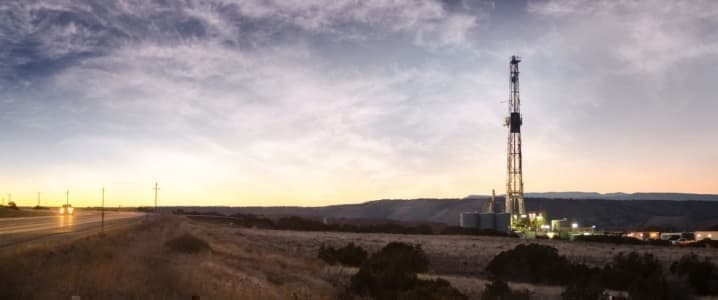Why A Shale Comeback Could Be Disastrous For Oil Markets

After having a year to forget in 2020, the energy sector has this year emerged as the best-performing of all 11 U.S. market sectors. Energy Select Sector SPDR ETF (NYSEARCA:XLE) is up 41% in the year-to-date, making the broader market S&P 500’s 11% gain appear downright anemic. Oil prices appear to have stabilized in the upper 60s, with WTI price finding support around $63 per barrel while Brent is seeing support around $65 per barrel.
The sector has a successful Covid-19 vaccination rollout and gradual recovery of the global economy to thank for the resurgence, with several countries—including the U.S. and much of Europe—having reopened their economies. But even more important is OPEC’s continuing production discipline with the organization sticking to earlier plans to only gradually increase production in its latest meeting. OPEC+ has cut output by around 8 million barrels per day (bpd), but has now agreed to bring 2.1 million bpd back to the market from May to July, easing cuts to 5.8 million bpd.
But experts are now warning that OPEC+, responsible for more than a third of global production, could see its efforts thwarted by a chief rival: U.S. shale.
According to an analysis by the authoritative Oxford Institute for Energy Studies, rising oil prices could allow for a significant return of U.S. shale to the market in 2022, potentially upsetting the delicate rebalancing of the global oil market.
“As we enter 2022, the US shale response becomes a major source of uncertainty amid an uneven recovery across shale plays and players alike. As in previous cycles, US shale will remain a key factor shaping market outcomes,” Institute Director Bassam Fattouh and analyst Andreas Economou have said.
Market surplus
The institute lays out several possible scenarios, including some that could lead to an oil surplus.
During its latest meeting+, OPEC+ said it expects global oil demand to increase by 6 million barrels a day during the second half of the year. It said it saw stocks at about 70 million barrels below the average for the whole of 2021, a more optimistic outlook than its previous forecast of 20 million barrels below the average. But the Oxford analysts say that an expected increase in shale output by 0.95 million barrels per day could be easily absorbed by the market unless the global recovery hits a major snag.
However, Fattouh and Economou have warned that the market could flip into a surplus by the fourth quarter of 2022 if the U.S. shale growth hits the upper bound of 1.22 million barrels per day and global demand recovery turns out to be slower than expected.
Shale recovery

What we find alarming about the Oxford report is that it might only take a partial recovery by the U.S. shale industry for the effects of the extra oil to start being felt. U.S. shale producers cut more than 2 million barrels per day last year after oil prices plunged to historical lows.
However, many shale companies have been ramping up production as oil prices continue climbing.
And that includes companies that have affected the deepest cuts. For instance, Texas-based shale producer ConocoPhillips (NYSE:COP) earned itself accolades after announcing some of the deepest production cuts at a time when many shale companies were reluctant to lower production and relinquish market share. The company lowered its North American output by nearly 500,000 bpd, marking one of the biggest cuts by an American producer. However, in its latest earnings call, COP revealed that Q1 production, excluding Libya, climbed 16.4% Y/Y to 1.49M boe/day, a good 30% above the 1.14M boe/day output in Q4 2020. COP issued upbeat guidance, saying it expects Q2 production, excluding Libya, of 1.5M-1.54M boe/day due to seasonal turnarounds planned in Europe and Asia Pacific.
U.S. rig count has been steadily creeping up. The key rig count is set to rise to 602 by year-end, a big jump from the 13-year low of 222 rigs last summer. While the direct relationship between rigs and production is complex, the Oxford analysts have concluded that rising shale output could affect the careful calculations of OPEC+.




